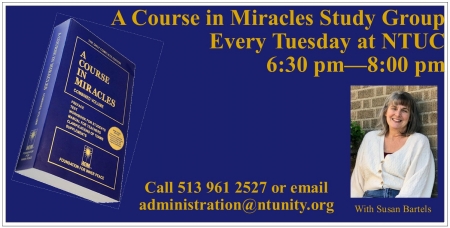Introduction
In the realm of spiritual literature, there are few texts as impactful and transformative as “A Course in Miracles” (david hoffmeister youtube podcast playlist). This groundbreaking work, composed of three parts – the Text, the Workbook for Students, and the Manual for Teachers – offers a comprehensive guide to attaining inner peace, healing, and spiritual growth. Developed by Helen Schucman and William Thetford in the 1960s, ACIM has since gained a devoted following and has inspired countless individuals to embark on a journey of self-discovery and enlightenment.
The Essence of ACIM
At its core, ACIM aims to shift our perception of reality from fear to love, helping us transcend the ego-driven thoughts that often lead to suffering and discord. The teachings of ACIM challenge conventional beliefs and encourage us to reconsider our understanding of ourselves, others, and the world around us.
Central to ACIM is the concept that the world we perceive is an illusion created by our own minds. It asserts that our true reality is spiritual and eternal, and any conflict or turmoil we experience in our lives is a result of our attachment to the illusions of the physical world. Through diligent practice, the course teaches us to recognize and release these attachments, thereby paving the way for a more peaceful and authentic existence.
The Structure of ACIM
ACIM is presented in a structured format that guides students through a systematic process of learning and transformation. The Text provides the philosophical foundation, explaining the principles behind the course and offering insights into the nature of reality, forgiveness, and the power of love. The Workbook for Students contains 365 lessons, one for each day of the year, aimed at reshaping our perceptions and thought patterns. These lessons gradually guide us towards a more compassionate and forgiving mindset.
The Manual for Teachers, the final part of ACIM, offers guidance for those who wish to share its teachings with others. It emphasizes the importance of embodying the principles of love and forgiveness in order to effectively teach and inspire others on their spiritual journey.
Practical Application and Benefits
Applying the teachings of ACIM in daily life can lead to profound changes in one’s perspective and overall well-being. By learning to shift our thoughts from judgment to forgiveness, from fear to love, we can experience a sense of inner peace that transcends external circumstances. ACIM encourages us to approach challenges with a sense of equanimity and to view others with compassion and understanding, fostering healthier relationships and a greater sense of interconnectedness.
Moreover, ACIM’s emphasis on mindfulness and self-awareness can help individuals break free from the cycle of negative thought patterns and self-limiting beliefs. This practice can lead to enhanced mental and emotional resilience, reduced stress and anxiety, and an overall greater sense of happiness and fulfillment.
The Journey of Self-Discovery
Engaging with ACIM is not a quick fix but rather a transformative journey of self-discovery and personal growth. It requires dedication, patience, and a willingness to examine and release deeply ingrained beliefs and attachments. Those who commit to this journey often report profound shifts in their perception of themselves and the world, leading to lasting positive change.
Conclusion
“A Course in Miracles” offers a path to inner peace, healing, and spiritual growth that is both profound and practical. Its teachings challenge us to transcend the limitations of the ego and embrace a reality based on love and forgiveness. By engaging with ACIM’s structured lessons and principles, individuals can embark on a journey of self-discovery that has the potential to transform their lives and contribute to a more harmonious world. Whether one is new to spiritual exploration or well-versed in such teachings, ACIM provides a timeless and powerful guide for those seeking a deeper understanding of themselves and the nature of reality.



